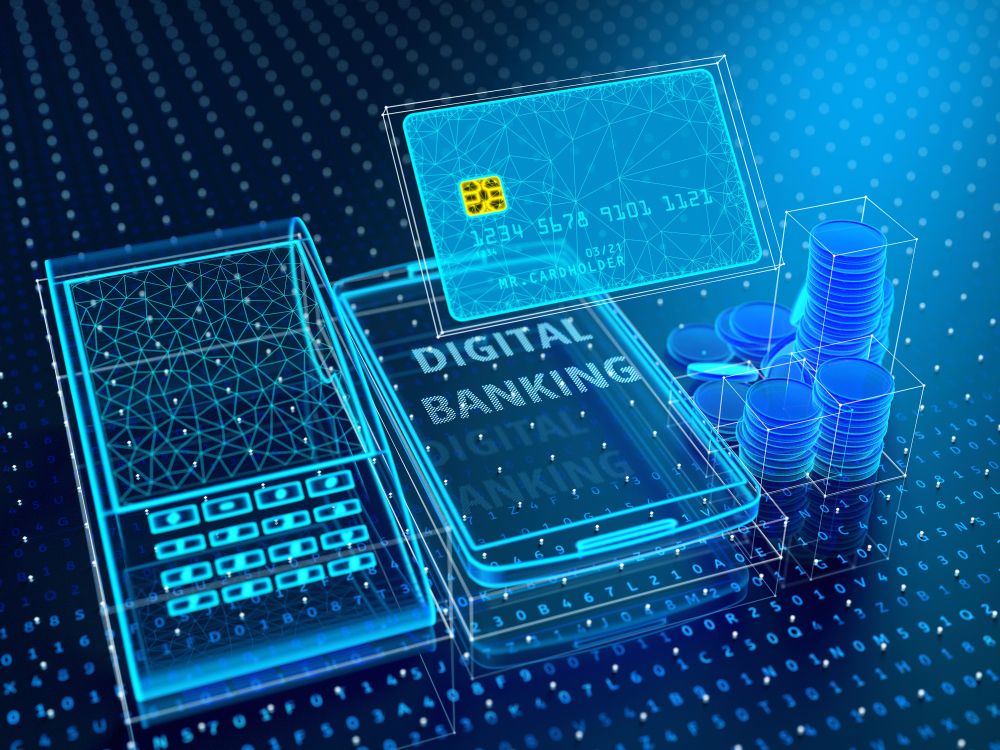
Welcome to the digital age, where convenience and efficiency reign supreme, especially in the world of personal finance. The emergence of online-only banking platforms has revolutionized the way we think about managing our money. With just a few clicks, you can pay bills, transfer funds, or check your balance from your smartphone or computer. However, as with any financial service, it’s crucial to weigh both the benefits and the risks before diving in. In this article, we’ll explore the ins and outs of online-only banking to help you make an informed decision.
The Convenience Factor
One of the most touted advantages of online-only banks is the sheer convenience they offer. Traditional brick-and-mortar banks are limited by their physical locations and operating hours, which can be a hassle for the busy modern consumer. Online banks, on the other hand, provide 24/7 access to your accounts, allowing you to perform transactions at any time and from anywhere.
Online banking platforms typically have user-friendly interfaces that make it easy to navigate through various services. You can set up automatic bill payments, deposit checks using your phone’s camera, and even open new accounts without ever needing to visit a branch. The convenience of these features can save you a significant amount of time, which is an invaluable commodity in today’s fast-paced world.
Moreover, online banks often offer more competitive rates on savings accounts compared to traditional banks, simply because they have lower overhead costs without physical branches to maintain. This means that your money can potentially grow faster, making online banking not just convenient but also financially rewarding.
Enhanced Digital Features
Online-only banking platforms are typically at the forefront when it comes to integrating the latest digital features. Since they operate solely on the internet, they are quick to adopt new technologies that improve the banking experience. For instance, many online banks provide sophisticated budgeting tools and financial analytics that can help you keep track of your spending and savings goals.
These platforms also make it easier to integrate with other financial services. You can often connect your online bank account to investment apps, peer-to-peer payment systems, and financial planning tools. This interconnectedness streamlines your financial management, putting all your financial data in one place for easy monitoring and analysis.
Furthermore, online banks are leading the way in implementing advanced security features such as two-factor authentication, biometric logins (like fingerprint or facial recognition), and real-time fraud monitoring. These features offer an added layer of protection for your financial information, which is especially important in an era where cyber threats are becoming increasingly sophisticated.
Financial Inclusivity
Online-only banks are changing the game when it comes to financial inclusivity. By eliminating the need for physical branches, they can offer services to a wider audience, including those in rural or underserved areas where traditional banking might not be as accessible.
In addition, the lower cost structure of online banks allows them to reduce or completely waive common banking fees, such as monthly maintenance fees or minimum balance fees. This makes banking more affordable for people who might otherwise be excluded from the financial system due to cost barriers.
The ease of setting up and managing an account online also appeals to younger generations and those who are comfortable with technology, further expanding the reach of these platforms. By catering to a more diverse customer base, online-only banks contribute to a more inclusive financial landscape.
Security Concerns
While online banks implement robust security measures, there are inherent risks associated with conducting financial transactions over the internet. Cybersecurity threats, such as hacking, phishing scams, and identity theft, can pose significant risks to online bank users.
It’s crucial for consumers to be vigilant and proactive about their online security. This includes using strong, unique passwords for their banking accounts, avoiding public Wi-Fi when accessing financial information, and keeping their software and anti-virus protection up to date.
Moreover, because online-only banks lack physical locations, customers may feel there is a lack of personal interaction if they encounter problems. While most online banks offer customer service through phone, chat, or email, some users may miss the face-to-face support they can receive at a traditional bank.
The Future of Banking
As we look to the future, it’s clear that online-only banking platforms will continue to shape the financial landscape. They are not just a passing trend but a significant shift in how people manage their money. With advancements in technology and increasing consumer confidence in digital services, online banks are poised for growth.
However, it’s important for these platforms to continue addressing the concerns and needs of their customers, particularly in the areas of security and customer service. As the industry evolves, we can expect to see even more innovative features and services designed to make online banking as secure, convenient, and user-friendly as possible.
The benefits of online-only banking platforms are substantial, offering convenience, enhanced digital features, and financial inclusivity. However, it’s important to remain aware of the risks, particularly those related to cybersecurity. By understanding both the advantages and potential drawbacks, you can make the most of what online banking has to offer while staying vigilant about protecting your financial well-being. As we embrace the future of banking, let’s do so with both excitement for the possibilities and caution to ensure our financial security.
